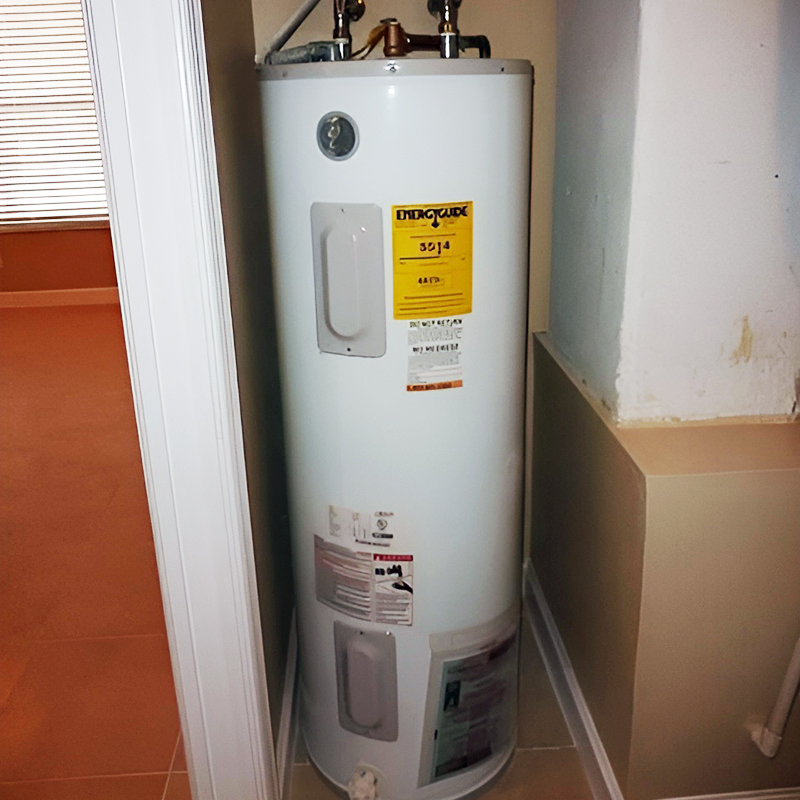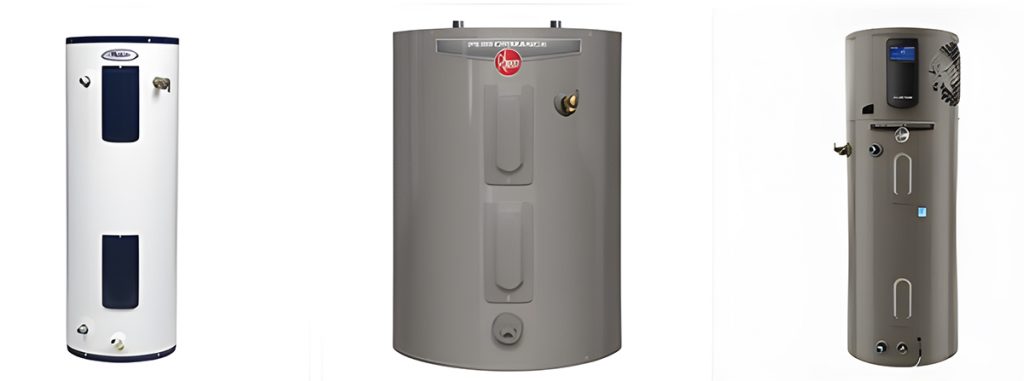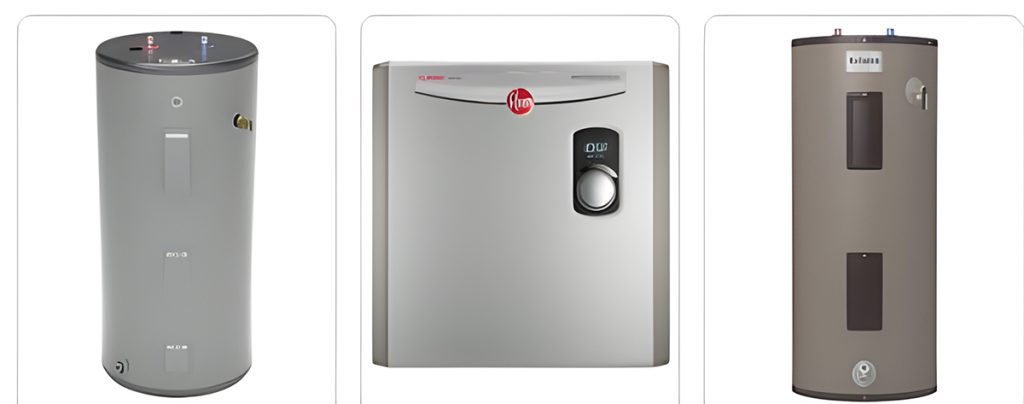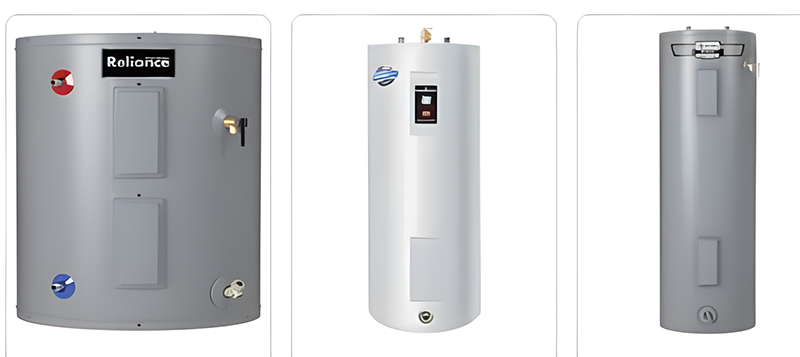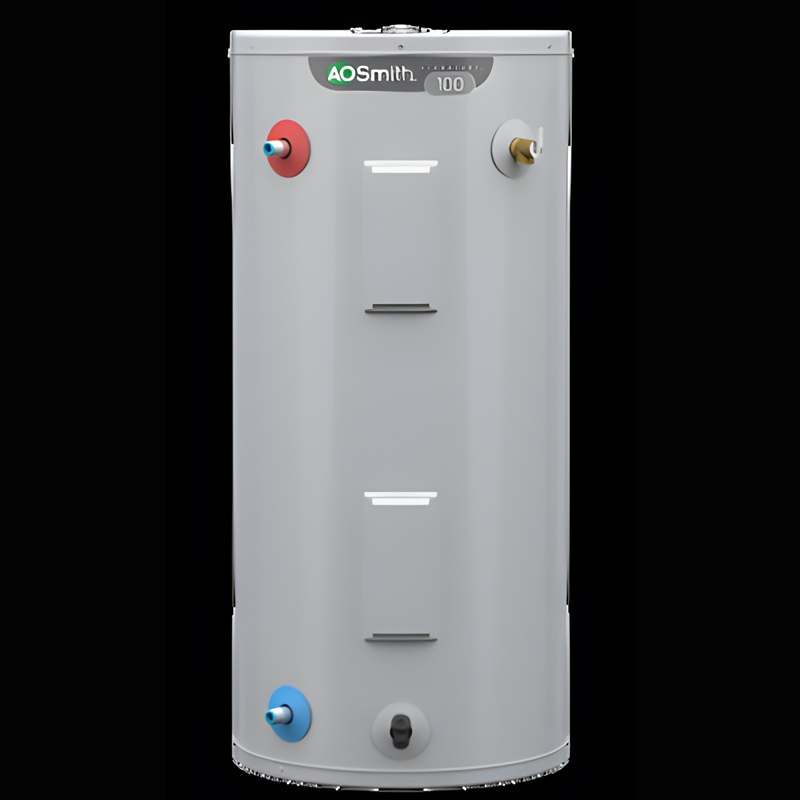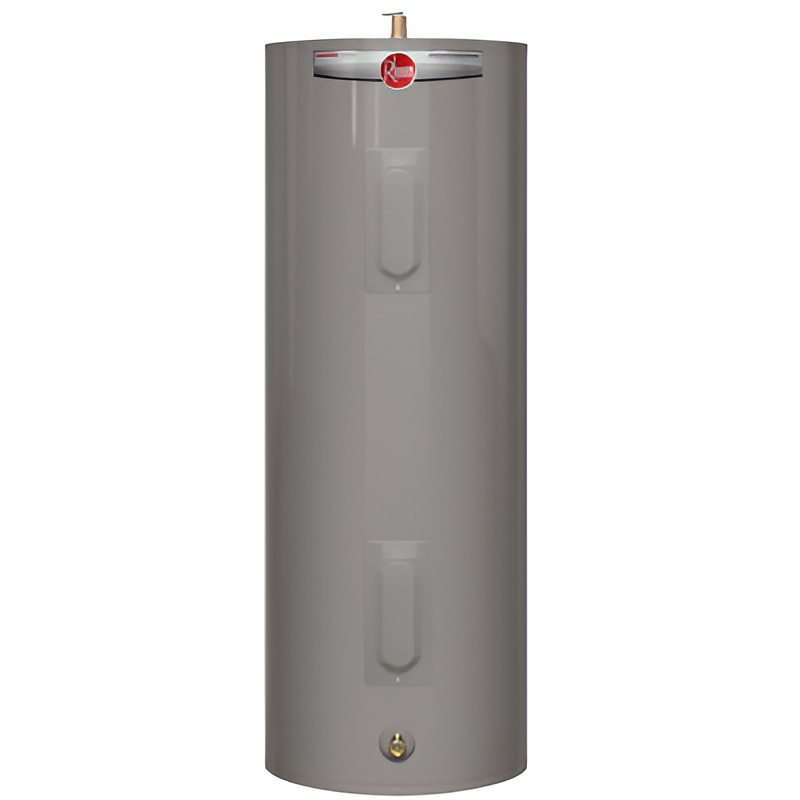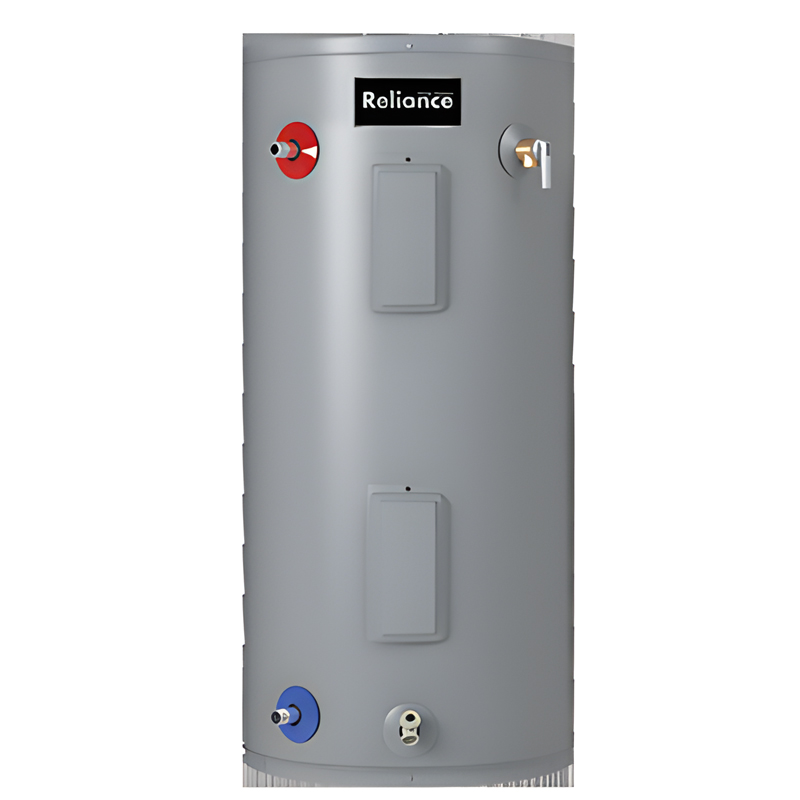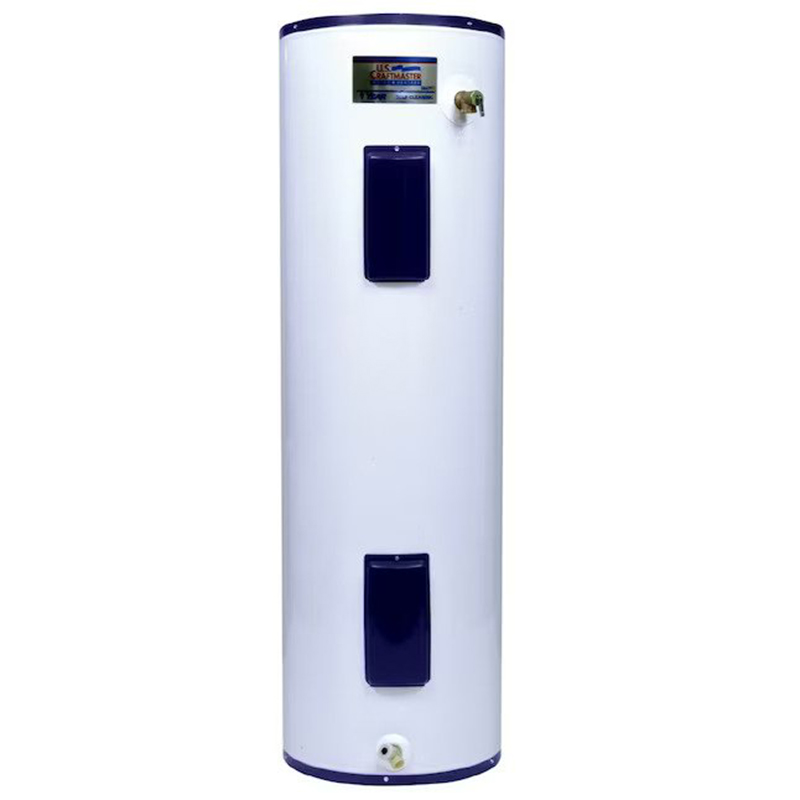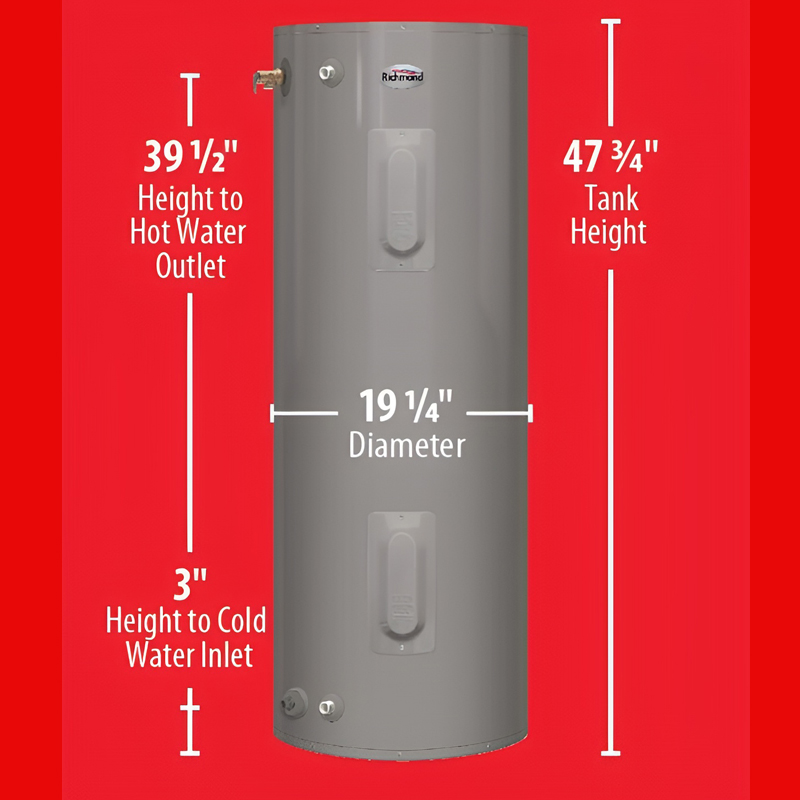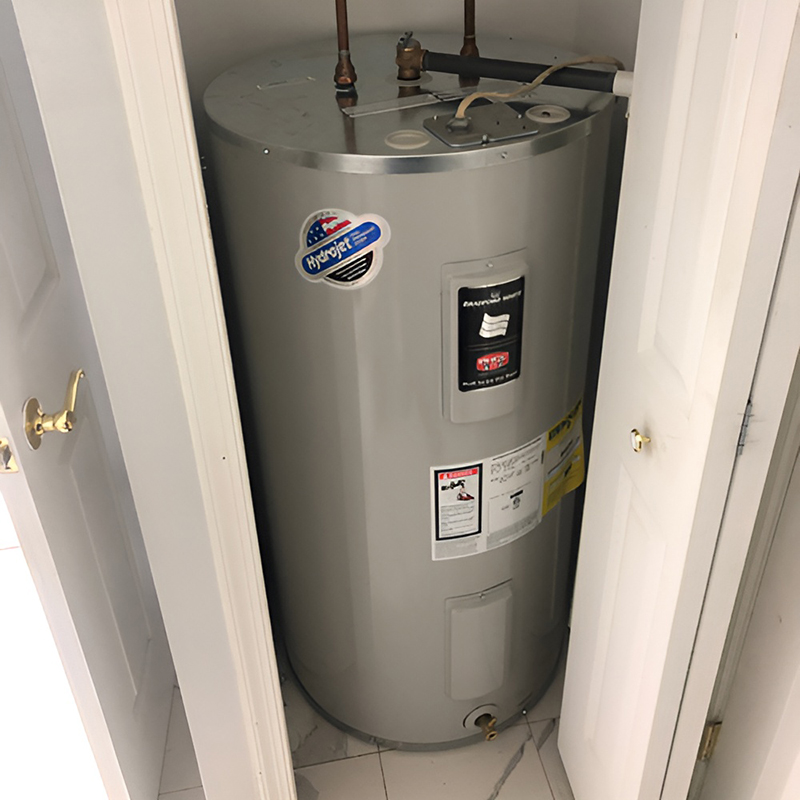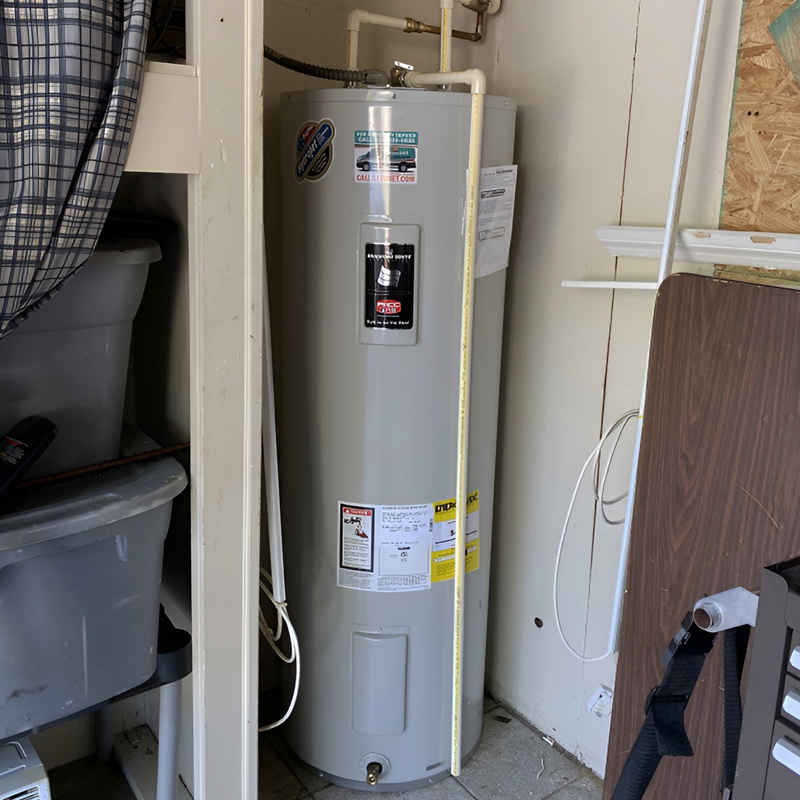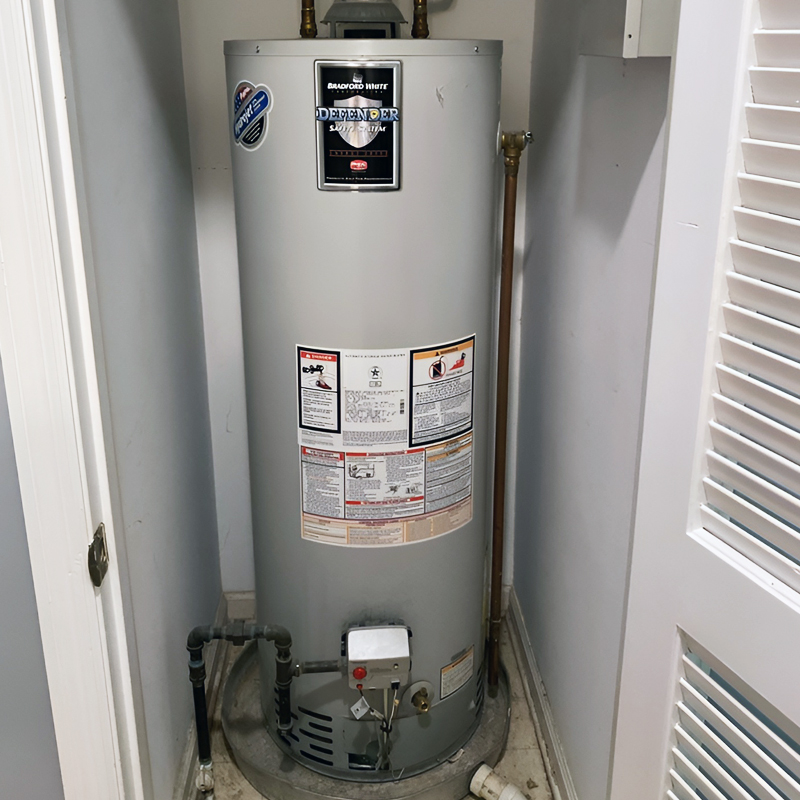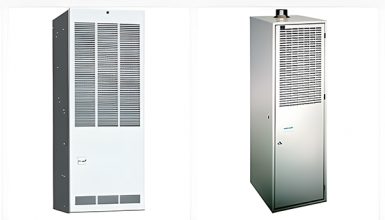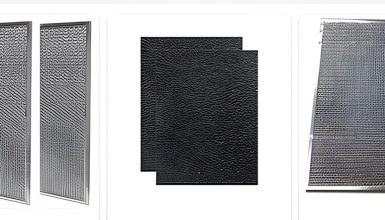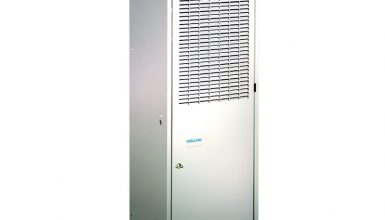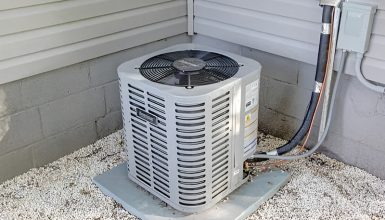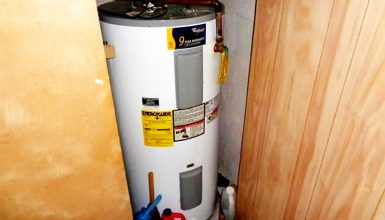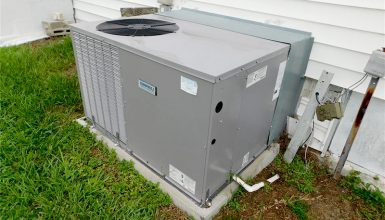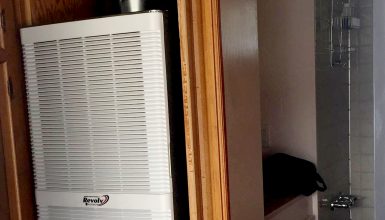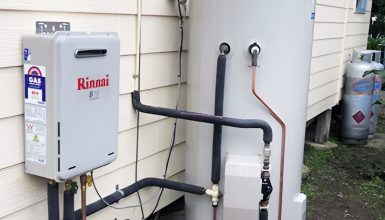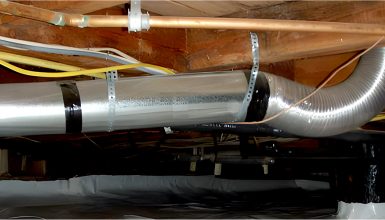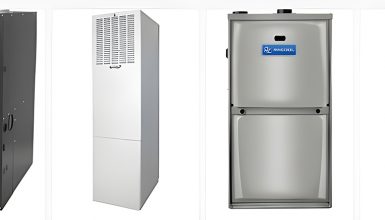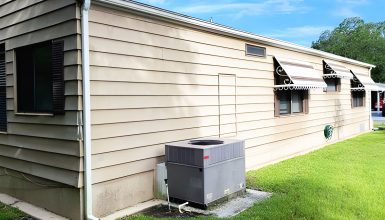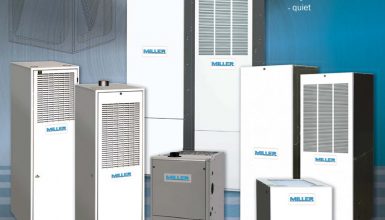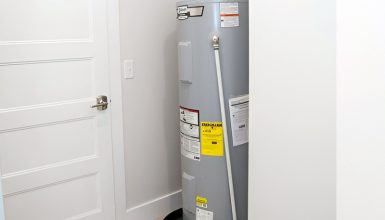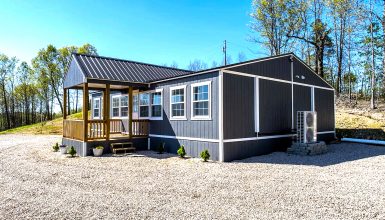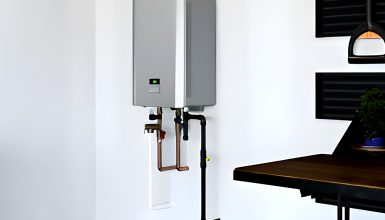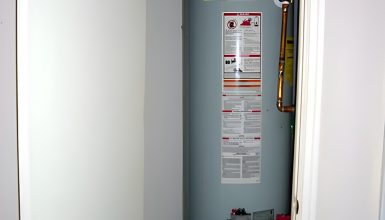Can you put an electric water heater in a mobile home? Yes, you can install it in a mobile home. In fact, electric water heaters are a popular choice for mobile homes due to their energy efficiency, compact size, and easy installation.
This guide will explore why electric water heaters are the perfect choice for mobile homes. And how they can make your life easier, more comfortable, and eco-friendly. Say goodbye to cold showers and hello to a warm, energy-efficient home!
How Does the Mobile Home Electric Water Heater Work
An electric water heater in a mobile home works quite similarly to a traditional home. Still, it’s usually more compact and suitable for the limited space available in mobile homes. Here’s a simple explanation of how an electric water heater works in a mobile home:
- Cold water enters the water heater: When you turn on a hot water tap or start a hot water appliance, cold water from your mobile home’s plumbing system flows into the electric water heater.
- Heating elements activate: Inside the water heater are one or two electric heating elements. Thermostats control these elements. When the cold water enters the tank, the thermostats detect the drop in temperature and activate the heating elements.
- Water gets heated: As the cold water flows over the heating elements, it gets heated to the desired temperature set by the thermostats. In a storage tank heater, the hot water is stored in the tank until it’s needed. In a tankless water heater, the water is instantly heated as it flows through the unit.
- Hot water is delivered: When you turn on the hot water tap, the heated water travels through your mobile home’s plumbing system and comes out of the faucet or showerhead. In a storage tank heater, the hot water is drawn from the top of the tank, while cold water enters the bottom to be heated. In a tankless heater, the hot water is supplied continuously as long as the tap is open.
- Thermostats maintain the temperature: The thermostats in your electric water heater continuously monitor the water temperature. If it drops below the set temperature, the heating elements are activated again to maintain the desired heat level.
Types of Electric Water Heaters for Mobile Homes
So, you’ve decided to use an electric water heater for your mobile home—an awesome choice! But did you know there are different types to pick from? Let’s explore the four main types of electric water heaters so you can find the perfect fit for your mobile home:
1. Tankless electric water heaters
These little wonders heat water on demand, so you’ll never run out of hot water. They’re small, compact, and super energy-efficient—perfect for tight mobile home spaces. Plus, they have a longer lifespan than traditional storage tank heaters. Sounds fantastic, right?
2. Storage tank electric water heaters
These are the classic water heaters you’re probably familiar with. They store and heat a large amount of water in a tank, ready for use when needed. They’re a bit bulkier than tankless models but come in various sizes to fit your mobile home’s space. And they’re usually more affordable upfront, too!
3. Heat pump electric water heaters
Ready for some cool technology? These heaters don’t generate heat directly. Instead, they use heat from the air or ground to warm your water, making them super energy-efficient. While they might cost more upfront, they can save you a ton on your energy bills in the long run. Keep in mind, though, that they work best in moderate climates.
4. Solar-assisted electric water heaters
For the eco-conscious homeowner, these heaters are a dream come true. They use solar energy to heat your water, with an electric backup for cloudy days. They’re super green but require a bit more upfront investment and installation. It might be the way to go to reduce your carbon footprint.
Factors to Consider When Choosing an Electric Water Heater
Alright, now that we’ve explored the different types of electric water heaters, let’s talk about some critical factors to consider when choosing the perfect one for your mobile home. Here are four fundamental things to keep in mind:
1. Energy efficiency
When selecting an electric water heater for your mobile home, energy efficiency is crucial. It directly impacts your energy consumption, utility bills, and the environment. Let’s dive deeper into energy efficiency and even look at an example.
- Energy Factor (EF) rating: This rating measures how efficiently a water heater converts energy (in this case, electricity) into hot water. The higher the EF rating, the more energy-efficient the water heater is. An EF rating of 0.90 or above is excellent for electric water heaters. A higher EF rating means the water heater uses less energy to heat the same amount of water, ultimately saving you money on your electric bills.
- Energy Star certification: To make searching for an energy-efficient water heater easier, look for models with the Energy Star certification. Established by the U.S. Environmental Protection Agency (EPA), this label signifies that the product meets strict energy efficiency guidelines. Energy Star-certified water heaters can save you anywhere from 10% to 50% on energy costs compared to standard models.
Let’s compare two electric water heaters: Heater A has an EF rating of 0.90, while Heater B has an EF rating of 0.70. If your annual energy cost for hot water is $500 with Heater B, you could save up to $100 per year by choosing Heater A, thanks to its higher energy efficiency (20% more efficient).
2. Size and capacity
Size matters regarding water heaters, especially in a mobile home with limited space. You’ll want to choose a model that fits your space and provides enough hot water. Let’s dive deeper into size and capacity and look at an example.
For storage tank heaters:
- Capacity: This refers to the amount of hot water the tank can hold at any given time. Typically measured in gallons, choosing a tank size that meets your household’s hot water demands is crucial. A general rule of thumb is to opt for a 30-gallon tank for one or two people, a 40-gallon tank for two to three people, and a 50-gallon tank for three to four people.
- Recovery rate: This is the amount of hot water the heater can produce per hour, starting with an empty tank. A higher recovery rate means the heater can replenish hot water more quickly. Check the heater’s First Hour Rating (FHR) to ensure it can meet your peak hot water needs.
For tankless heaters:
- Flow rate: This is the amount of hot water the heater can produce per minute (measured in gallons per minute or GPM). Choose a flow rate that can handle multiple hot water fixtures running simultaneously. For example, if you need to run a shower and a washing machine simultaneously, you might need a tankless heater with a flow rate of at least 5 GPM.
- Temperature rise: This refers to the difference between the incoming cold water temperature and the desired hot water temperature. Most tankless heaters provide a temperature rise of around 50-70°F, depending on the flow rate. Ensure the heater you choose can raise your region’s required temperature.
Example: Let’s say you have a family of three living in a mobile home, and you’re considering a storage-tank water heater. A 40-gallon tank with a recovery rate of 18 gallons per hour should be sufficient for your needs. It can provide enough hot water for your family and replenish the supply relatively quickly.
3. Installation requirements
Before buying a water heater, ensure you understand the installation requirements. Will you need to upgrade your electrical panel or add new wiring? What about plumbing connections? Let’s dive deeper into installation requirements and look at an example. Here are some key aspects to consider when evaluating installation requirements:
- Electrical capacity: Electric water heaters require a dedicated electrical circuit with the appropriate amperage and voltage. It’s crucial to check whether your mobile home’s electrical panel can handle the water heater’s power demands. For example, a standard electric tank water heater may require a 240-volt circuit with a 30-amp breaker. In comparison, a tankless heater might need a higher amperage.
- Wiring and electrical connections: Assess the wiring requirements for the specific water heater model you’re considering. You may need to install or upgrade new wiring to ensure proper functioning and safety.
- Plumbing connections: The water heater needs to be connected to your mobile home’s cold water supply and hot water distribution system. Make sure the plumbing connections are compatible with your chosen water heater and that they comply with local building codes.
- Space and clearance: Electric water heaters come in various sizes, so choosing a model that fits the designated space in your mobile home is essential. Additionally, ensure enough clearance around the water heater for ventilation, maintenance, and safety.
- Permits and local regulations: Check your local building codes and regulations before installing a new electric water heater. You may need to obtain permits or follow specific guidelines for installation.
4. HUD Approved
The U.S. Department of Housing and Urban Development (HUD) sets specific mobile home construction standards, including water heaters guidelines. To ensure that you choose a HUD-approved electric water heater for your mobile home, look for models labeled for mobile home use. HUD-approved electric water heaters for mobile homes typically have the following characteristics:
- Designed specifically for mobile home use
Many manufacturers produce electric water heaters explicitly designed for mobile homes, ensuring they meet HUD’s requirements and can be safely installed.
- Temperature and pressure relief valve
HUD-approved electric water heaters must include a temperature and pressure relief valve (TPR valve) to prevent excessive pressure and temperature buildup within the tank.
- Proper ventilation
Electric water heaters for mobile homes should be installed with adequate ventilation, as specified by HUD guidelines and the manufacturer’s instructions.
- Compliant with local codes
Besides meeting HUD requirements, mobile home electric water heaters should comply with local building and safety codes.
5. Cost and budget considerations
Finally, think about your budget. While choosing the cheapest option is tempting, remember that a more efficient model might cost more upfront but save you money in the long run. Consider both the initial purchase price and ongoing operational costs when deciding.
Top Electric Water Heaters for Mobile Homes
Here’s a list of the top efficient electric water heaters ideal for mobile homes. These models have been selected based on their energy efficiency, compact design, and positive user reviews:
1. A.O. Smith E6-40M6-45SV 40-Gallon Electric Water Heater
The A.O. Smith E6-40M6-45SV is an excellent option for mobile homes and manufactured housing, as it’s HUD-approved and specifically designed for such applications. This water heater is suitable for households with 2-3 people. It provides a first-hour delivery of 54 gallons thanks to its 4,500-watt copper heating element.
With a 0.95 Uniform Energy Factor, this energy-efficient model can help save money on your energy bills. Its short profile (49.75 inches high and 22 inches in diameter) is designed for easier installation in mobile homes and manufactured housing spaces.
This water heater features a premium heating element, anode rod, and fused ceramic tank shield, ensuring superior tank protection and an extended lifespan. The non-CFC polyurethane foam insulation and factory-installed heat trap nipples increase energy efficiency by reducing heat loss.
The adjustable thermostat allows for easy temperature control, letting you set the water temperature higher for dishwashers and laundry machines or lower, depending on your needs. The A.O. Smith E6-40M6-45SV comes with a 6-year limited residential warranty, offering you peace of mind with your purchase.
2. Rheem Professional Classic 40 Gallon Electric Water Heater
The Rheem Professional Classic is a HUD-approved option for mobile home installations. It offers high performance, lower operating costs, and long-lasting tank protection, making it an ideal choice for mobile homeowners.
Key features of the Rheem Professional Classic 40-Gallon Electric Water Heater include:
- HUD approval: This water heater is designed to meet the unique requirements of mobile home installations, ensuring compliance with specific standards.
- Electrical requirements: The water heater requires a 240-volt connection for installation.
- Safety features: The temperature and pressure relief valve is included, providing essential protection against excessive pressure and temperature buildup within the tank.
- Element options: Single and double-element models suit hot water demands and preferences.
- Isolated tank design: This feature reduces conductive heat loss, improving the efficiency of the water heater.
- Premium grade anode rod: The anode rod provides long-lasting tank protection, ensuring the durability and longevity of the water heater.
- High performance and lower operating cost: The Rheem Professional Classic offers excellent performance while reducing energy consumption, ultimately lowering utility costs.
- Easy installation: The electric junction box is above the heating elements, making installation more convenient and straightforward.
- Automatic thermostat: The thermostat maintains the desired water temperature, ensuring a steady hot water supply when needed.
- Warranty: This water heater comes with a 6-year limited tank and parts warranty, offering peace of mind for your investment.
3. Reliance EMHSD 40-Gallon Electric Water Heater
The Reliance EMHSD is a reliable option designed for manufactured housing and meets HUD requirements. This water heater offers a combination of efficiency, durability, and easy installation for mobile homes.
Key features of the Reliance EMHSD 40-Gallon Electric Water Heater include:
- Compliance with HUD requirements: This water heater is designed to meet the specific needs of mobile homes and manufactured housing installations.
- Warranty: The water heater comes with a 6-year tank and parts guarantee and a 1-year parts warranty, ensuring protection for your investment.
- Dual heating elements: The heater has dual 3800-watt, 240-volt copper-sheathed heating elements for efficient and quick water heating.
- Glass-lined tank and anode rod: The glass-lined tank and anode rod protect against corrosion, prolonging the water heater’s life.
- Environmentally-friendly insulation: Non-CFC foam insulation helps to minimize heat loss and enhance the energy efficiency, contributing to a greener environment.
- Factory-installed T&P relief valve: The temperature and pressure relief valve is a crucial safety feature that prevents excessive pressure and temperature buildup within the tank.
- Side inlet and outlet connections: These connections are designed for easier installation in mobile homes, making the process more convenient for homeowners.
4. U.S. Craftmaster 30 Gallon Electric Water Heater
The U.S. Craftmaster 30-Gallon Electric Water Heater is a HUD-approved option for mobile homes and manufactured housing installations. This water heater offers reliability and efficiency for homeowners in manufactured housing who want a dependable electric water heater.
Key features of the U.S. Craftmaster 30-Gallon Electric Water Heater include:
- Dual heating elements: The water heater is equipped with 4.5 KW/240-volt dual heating elements (other wattages and voltages are also available) to ensure maximum efficiency and quick water heating.
- Energy-efficient insulation: The non-CFC polyurethane foam insulation helps to prevent heat loss, reducing energy costs and promoting energy efficiency.
- Fused ceramic shield tank: The ceramic shield tank provides anti-corrosion protection, ensuring the water heater’s durability and longevity.
- Factory-installed side temperature and pressure valve: This essential safety feature prevents excessive pressure and temperature buildup within the tank.
- Thermostat/high limit control: The adjustable thermostat allows for easy temperature control, while the high limit feature provides overheat protection for added safety.
- Built-in electric junction box: This feature simplifies the installation process, making it more convenient for mobile home and manufactured housing applications.
- Non-metallic, corrosion-free drain valve: The drain valve is designed to resist corrosion, ensuring long-lasting performance and easy maintenance.
5. Richmond T2V30-D 30 Gallon Electric Water Heater
The Richmond T2V30-D is reliable and efficient for manufactured (HUD) and modular construction. It offers continuous hot water for households of 2 people, making it an ideal choice for smaller mobile homes.
Key features of the Richmond T2V30-D 30-Gallon Electric Water Heater include:
- Certification: The water heater is certified for manufactured (HUD) and modular construction, ensuring compliance with specific requirements for mobile homes.
- Capacity: The 30-gallon tank provides sufficient hot water for a household of 2 people.
- Warranty: This water heater comes with a 6-year tank, limited parts warranty, and a 2-year in-home labor warranty, offering peace of mind for your investment.
- Energy efficiency: With a 0.92 uniform energy factor, this water heater produces continuous hot water while saving on energy costs, making it an energy-efficient choice.
- Convenient installation: The side connections make mobile home installation more straightforward and convenient.
- Electrical requirements: This water heater requires a 240-volt electrical connection to operate.
- Water connection: The heater has a 3/4″ MIP water connection to integrate with your existing plumbing system seamlessly.
Mobile Home Electric Water Heater Costs
The cost of a mobile home electric water heater can vary depending on several factors, such as the size, brand, energy efficiency, and unit features. Here’s a general overview of what you can expect in terms of costs for different types of mobile home electric water heaters:
- Purchase cost
A mobile home electric water heater typically ranges from $300 to $800, with smaller capacity units (30-gallon tanks) at the lower end of the price range and larger capacity units (40-50-gallon tanks) at the higher end. Premium brands with advanced features and higher energy efficiency ratings may cost more.
- Installation cost
Installation costs for mobile home electric water heaters can vary depending on factors such as the complexity of the installation, labor rates in your area, and whether any modifications are needed to accommodate the new unit. Generally, you can expect to pay anywhere from $300 to $800 for professional installation. Remember that some warranties may require professional installation, so check your warranty terms.
- Operating cost
The ongoing cost of operating an electric water heater in a mobile home will depend on factors such as the unit’s energy efficiency, the cost of electricity in your area, and how much hot water your household uses. More energy-efficient units typically have lower operating costs, so it’s essential to consider long-term savings when choosing a water heater. You can check the unit’s Uniform Energy Factor (UEF) to understand its energy efficiency.
- Maintenance cost
Regular maintenance is essential for your electric water heater’s proper functioning and longevity. Maintenance tasks may include periodically flushing the tank, checking the anode rod, and inspecting the temperature and pressure relief valve. The costs associated with these tasks will vary depending on whether you perform them yourself or hire a professional. A professional maintenance service can cost anywhere from $100 to $200, depending on the level of service required.
Install an Electric Water Heater in a Mobile Home
Ready to install your new electric water heater in your mobile home? Great! Here’s what you need to keep in mind:
Tools and materials
When installing an electric water heater in your mobile home, it’s essential to have the right tools and materials. Here’s a list of items you’ll need to ensure a smooth and efficient installation process:
- Pipe wrench: For tightening and loosening pipe connections.
- Adjustable wrench: Useful for adjusting nuts and bolts of various sizes.
- Pipe cutter or hacksaw: To cut through pipes as needed.
- Teflon tape: Helps create watertight seals on threaded pipe connections.
- Screwdrivers: Both flathead and Phillips head screwdrivers will come in handy.
- Voltage tester: To check for live electrical wires before working on connections.
- Wire stripper: For stripping insulation from electrical cables.
- Wire nuts or connectors: To join electrical cables securely.
- Plumber’s tape or pipe joint compound: For sealing threaded pipe connections.
- Bucket or towels: For catching any water that might spill during installation.
- Pipe insulation: To insulate hot water pipes and minimize heat loss.
- Pressure relief valve (for tankless heaters): A safety device that releases excess pressure from the system.
- Level: To ensure the water heater is positioned correctly and evenly.
- Safety glasses and gloves: To protect yourself during the installation process.
Step-by-step installation guide
- Turn off the power: Switch off the electricity at the main circuit breaker. Use a voltage tester to ensure no current flows through the wires where you’ll be working.
- Prepare the area: If you’re replacing an old water heater, turn off the water supply, drain the tank, and disconnect the electrical connections and plumbing. Clear and clean the installation area, ensuring enough space and clearance for the new water heater.
- Position the water heater: Place the new one in the designated area, ensuring it’s level and secure. Make sure the electrical and plumbing connections are easily accessible.
- Install the pressure relief valve (for tankless heaters): Attach the pressure relief valve to the designated port on the heater, following the manufacturer’s instructions.
- Connect the plumbing: Attach the cold water supply line to the inlet and the hot water line to the outlet, using Teflon tape or pipe joint compound to create watertight seals on threaded connections. Check the manual for specific connection requirements.
- Connect the electrical wiring: Connect the electrical wires from the water heater to the designated circuit breaker, following the manufacturer’s instructions and local electrical codes. Use wire nuts or connectors to join wires securely.
- Turn on the water supply: Open the valve and check for leaks around the connections. If any leaks are detected, turn off the water supply and fix the connections before proceeding.
- Restore power: Turn the power back on at the main circuit breaker. Set the thermostat on the water heater to your desired temperature, typically around 120°F (49°C).
- Test the water heater: Allow the water heater to heat up for a while, and then test the hot water at various faucets in your mobile home to ensure proper functioning.
- Insulate hot water pipes: To reduce heat loss and save energy, consider insulating them, especially if they run through unheated areas.
Remember to prioritize safety during installation and consult a professional if you’re unsure about any steps or if your water heater has unique installation requirements.
Troubleshooting Mobile Home Electric Water Heater
Installing and maintaining an electric water heater in a mobile home may sometimes involve encountering common issues. Here’s a list of some typical problems and their solutions:
1. No hot water:
- Check the circuit breaker to ensure it hasn’t tripped. If it has, reset it.
- Verify the thermostat is set to the correct temperature (usually around 120°F or 49°C). Adjust it if necessary.
- Inspect the heating elements and replace them if they’re damaged or faulty.
2. Insufficient hot water:
- Adjust the thermostat to a slightly higher temperature.
- Check for sediment buildup in the tank (for storage heaters) and flush the tank to remove the sediment.
3. Slow hot water recovery:
- Remove any sediment buildup in the tank by flushing it.
- Make sure the thermostat is set to the correct temperature.
- Inspect the heating elements and replace them if necessary.
4. Leaking water heater:
- Inspect the connections and tighten them if needed.
- Check the pressure relief valve and replace it if it’s damaged or not functioning correctly.
- Look for cracks or corrosion in the tank (for storage heaters) and replace the unit if necessary.
5. Unusual noises:
- If you hear popping or cracking noises, it could be due to sediment buildup in the tank. Flush the tank to remove the sediment.
- If you hear hissing or sizzling sounds, it might be caused by a leaking heating element. Inspect and replace the heating element if needed.
6. Water is too hot:
- Lower the thermostat to the recommended temperature (around 120°F or 49°C).
7. Rust-colored or foul-smelling water:
- Flush the tank to remove sediment and bacteria buildup.
- Inspect the anode rod (for storage heaters) and replace it if worn out or corroded.
8. Tripping circuit breaker:
- Ensure the water heater’s electrical requirements match your mobile home’s capacity.
- Inspect the heating elements and replace them if they’re damaged or faulty.
- Check for loose or damaged electrical connections and repair or replace them if necessary.
Conclusion
And there you have it, folks! We’ve explored the world of electric water heaters for mobile homes, covering everything from their importance to types, factors to consider, top models, and installation tips. By now, you should better understand what to look for when choosing the perfect water heater for your mobile home. Happy heating!

